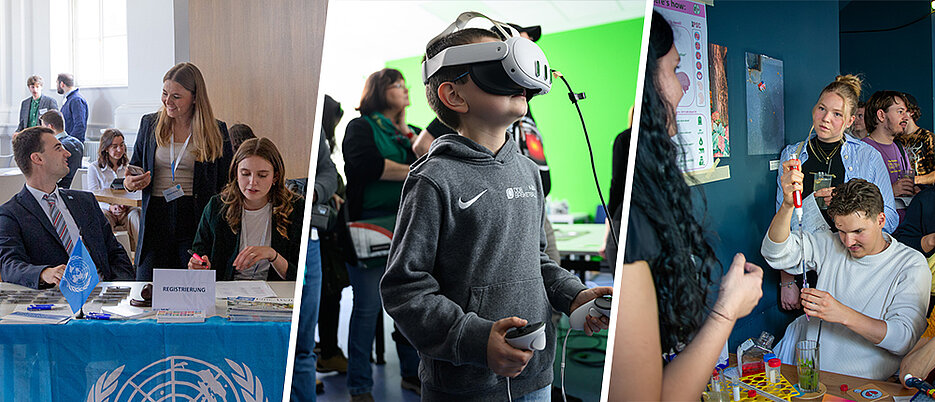Successful Start for New Scicomm Funding Programme
09/02/2025The University of Würzburg is supporting researchers who bring science to life in an innovative way with a new funding programme. Demand is high: there are only four available grants of 1,000 euros each for 2025.

The funding pot was introduced at the beginning of the year and is part of the university agreement between JMU and the Bavarian Ministry of Science. The aim is to give researchers the opportunity to develop and implement their own science communication formats without the need for complicated application procedures.
"For us, science communication means breaking down boundaries," says University Press Officer Esther Knemeyer. "We specifically promote formats that go beyond the lecture theatre and the specialist community, that arouse curiosity and allow the public to participate in research in an understandable and entertaining way."
Four Grants Are still Available
Six grants have already been approved since the beginning of the year, and four are still available. Researchers at all career levels at JMU can apply for them. Applications can be submitted quickly and easily using the online form on the Press Office website. After a review by the editorial team, the applicant will receive feedback on the application in a timely manner.
Here is an overview of the projects that have already been funded:
- At the Space Day, the Institute of Computer Science offered young and old a look behind the scenes: Interested parties were able to visit the satellite control centre and the robotics hall and follow a live radio link to a satellite in space.
- The BioBlitz at the Faculty of Biology brought researchers together with citizens to record the biodiversity of agricultural landscapes at Würzburg's Hubland for 24 hours. The event offered a young audience in particular the opportunity to experience nature conservation up close.
- At the Würzburg Model United Nations (WüMUN) organised by the Chair of International Relations and European Studies, pupils and students took on the role of UN diplomats. They conducted negotiations in mock UN committees and learnt about political processes at first hand.
- The Science Pub organised by the University of Würzburg's SciCom Café brought researchers and guests to the Moritzbar in Würzburg to chat over cocktails. Games, lively presentations and creative visual aids created a relaxed setting for communicating science in a low-threshold way.
- Planned: On 3 October, the Institute of Hygiene and Microbiology invites children to discover the world of microbiology in a playful way on the nationwide "Doors open with the mouse" day. The aim is to arouse the curiosity of young guests and make science accessible in an understandable way.
- Planned: The Faculty of Physics and Astronomy's Long Night of (Quantum) Physics on 14 November will present research for all age groups - with lectures, a science slam, a laser show and a highlight lecture by Würzburg Nobel Prize winner Klaus von Klitzing. Participants can experiment for themselves at hands-on stations.
Contact
Dr Esther Knemeyer, Press Officer, Tel. +49 931 31-86002, wisskomm@uni-wuerzburg.de
Sebastian Hofmann, Editor for Science Communication, Phone +49 931 31-80484, wisskomm@uni-wuerzburg.de







